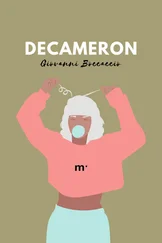“Kimmy, you first.” He pulled his sister with all of his might up into the front seat and passed her to Lloyd, who pushed her through the fully breached window. “Climb up on top of the car and hang on,” said Shawn.
Next was Shawn’s turn. He crawled jumbly-limbed over his father, making sure to knee him in the groin as he passed. Shawn hung onto his sister on the top of the slippery, bobbing car, not knowing if his father would follow the two of them out or not. And not really caring.
Just as the lake water began to flood through the paneless window, Lloyd emerged from the car. He treaded water next to the car, gasping and half-choking. A fisherman in a rowboat coming in late had watched the car go into the water but had been too far removed to attempt an early rescue on his own. Now he paddled up to the drowning Accord and helped Kimberly and her brother into his boat.
Kimberly cried softly. She didn’t look at Lloyd as he lifted himself, heavy with sodden clothing, into the boat from the black water.
Shawn didn’t look at him either.
As the fisherman rowed toward the shore Shawn watched the car, still dimly lit inside, sink slowly beneath the surface of the lake and disappear.
Lloyd spent the next several years trying his best to redeem himself in the eyes of his children. Shawn vowed not to have anything to do with him. Kimberly followed her big brother’s example. There was, however, one thing that Shawn did for Lloyd, and it was an important thing: he told the sheriff that going into Arkabutla Lake had been an accident. This lie spared his father from spending the rest of his life in prison.
Eventually Lloyd gave up trying to win his children’s forgiveness. He moved to another state and was not heard from again.
When, years later, Shawn Toland joined the Mississippi chapter of the NRA, he told a group of fellow gun owners that a gun had protected his sister and him when set upon by a madman. He didn’t mention any details, including the most important detail of all: that the madman was a man whom he had once loved with a full filial heart, as every good son is taught to do.
It wasn’t any of their business.
1992 GRIEVING IN MINNESOTA
“It just isn’t right,” said Bonnie. Vicki nodded. The sisters, both in their late thirties, were at their favorite coffeehouse in St. Paul. An acoustic guitar could be heard over the drone of caffeine-fueled customer chatter. The air was infused with the smell of roasting coffee. This was Dunn Brothers’ biggest boast: they roasted their own coffee every day right on the premises.
“In fact, it’s actually kind of creepy,” Bonnie went on. “Having to listen to Dad’s voice every time I call home and Mom’s not there.”
Vicki crunched a biscotto. “Another Vietnamese family moved onto my street. Now we have three.”
“I’m talking about Mom.”
“What do you want me to do about it?”
“Tell her to record a new greeting for her answering machine. Dad’s been dead for six months.”
Vicki wet her finger with her tongue and poked at the crumbs of biscotti on her plate. She licked them off her finger.
“Go ahead. Say it.”
“Say what?”
“Whatever it is you seem dying to say.”
“All right, then. I’ll say it. I happen to like hearing Dad’s voice on Mom’s answering machine.”
“Really?”
Vicki shrugged.
“Alice and I aren’t home right now. Well, I don’t know where she is, but I’m currently up in Heaven with Jesus . That’s the vibe it’s giving out — you know that, right?”
“Bonnie, do you want me to talk to her? Is that why you’re bringing this up?”
“Yes, I want you to talk to her. She listens to you. And make her start giving away some of those clothes to the Goodwill or somebody. It’s like he’s off on a business trip and she’s just waiting for him to get back.”
“If that’s how she wants to handle this, I think it’s her right.”
Bonnie stared at her sister. “Pretending he’s still alive doesn’t help things. Do you remember how hard it was just getting Mom to talk to the man about the life insurance? It was $50,000 and she was dragging her feet.”
Vicki looked out the window. She watched the pedestrians walking up and down bustling Grand Avenue. “My whole neighborhood is starting to smell like fried egg rolls.”
“You don’t want to talk to her.”
“Not really.”
“All right, then.”
“I just think—”
“Let’s just drop it.”
Vicki turned to the barista wiping down the table next to her. “Can I have another half-cup of the Vienna roast?”
“Six months is a long time for a woman to keep her dead husband’s voice on her answering machine, Vicki.”
“I thought we weren’t discussing it anymore. Are you going to eat the rest of that muffin?”
Alice Schuford had a friend over. Her name was Bettie O’Shield, and she had known Alice since the two had met as twelve-year-olds at Chippewa Ranch Camp in Wisconsin’s North Woods. Bettie now lived in Minneapolis. Right after Alice’s husband Burl’s death, Bettie was with her friend nearly every day. Lately the visits had tapered off, by mutual agreement, to about twice a week.
“So what is the one thing you did this week?” asked Bettie. Bettie O’Shield was drinking “French Vanilla Café” in a teacup. Bettie sometimes pretended that she and Alice were the two young women in the General Foods International Coffees commercial, grabbing girl-time together in what looked like the middle of a flower shop. Alice and Bettie were sitting on the sofa in Alice’s den. The den had been her husband’s domain — everything was either paneled or shagged. There wasn’t a bright color, flower, or houseplant in sight.
Alice pointed at her husband’s worn Naugahyde recliner. “I almost called St. Vincent de Paul this morning to take this chair away.”
“Why didn’t you? I had them haul away my old couch last month. They use off-duty firemen. There were two gorgeous off-duty firemen in my house, Alice. I made them stay and have some bundt cake.”
“I just can’t bring myself to get rid of anything.”
“You need to re-record your O.G.M., honey.”
“What’s my ‘O.G.M.’?”
“Your outgoing message. On your answering machine. Don’t people call — people who don’t know you — don’t they call and hear Burl’s voice and leave messages for him?”
“Yes, but it doesn’t matter because I don’t call them back.”
“What if they call back? What do you say to them?”
“I say he isn’t home.”
“Then they’ll just call back again.”
“Sometimes I say he’s away on business.”
“That’s an awfully long business trip your husband’s taking.”
“Bettie, sometimes what you think is clever is really just rude.” Alice stood up. “Can I get you another cup?”
“Only if you want me to go into a diabetic coma. Alice, you need to get rid of all of this furniture. This was his room — you need to make it your room now. And you need to do something with his clothes. Listen to me, honey. I’ve been through this before.”
“You never lost a husband.”
“Not to death , but I have certainly lost a husband. Everything Dusty left behind, I burned in the backyard. There were toxic fumes and the fire department showed up. That’s the happy ending to that story. I gave the firemen apple fritters.”
Alice sat back down. “It’s hard, Bettie.”
“I know, honey. It’s one of the hardest things you’re ever going to do.”
Alice leaned forward. She took her head in her hands and massaged her temples. “I don’t even cry anymore,” she said, her voice slightly muted. “It’s like I don’t have any tears left.” Alice lifted her head to look directly at her friend. “Why do you and Bonnie and everybody else want me to erase him — to pretend like he was never even here?”
Читать дальше












